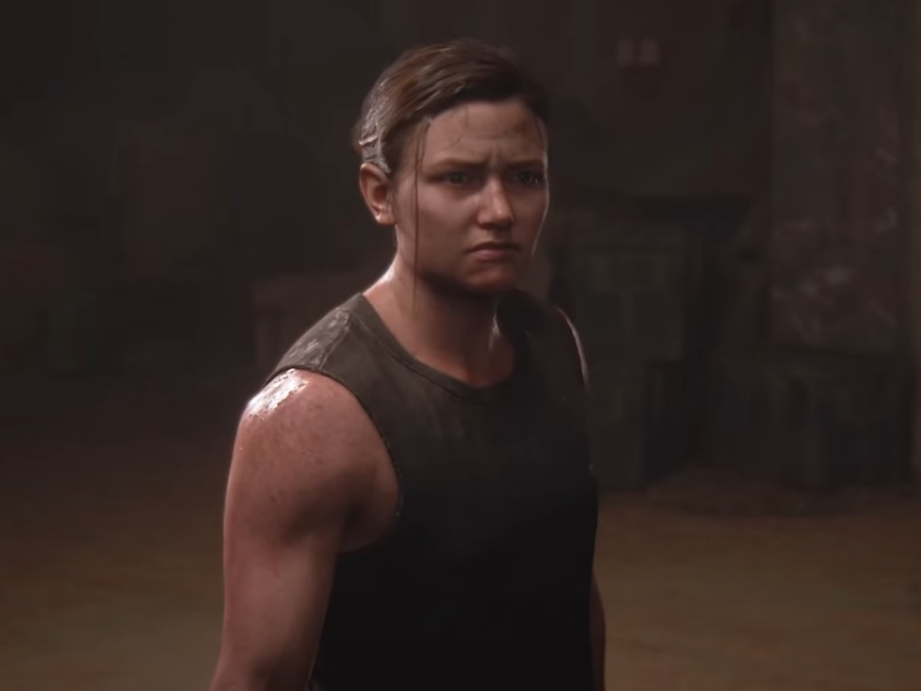The rampant body-shaming of Abby in The Last of Us Part II shows gamers still can’t accept a realistic female lead

I am an Abby stan.
That statement alone is one of the most controversial among gamers right now after the release of The Last of Us Part II, The much-hyped sequel to 2013's runaway hit The Last of Us and the most divisive gaming release thus far this year.
Like its predecessor, the game has been lauded as a critical darling and broke multiple sales records since its 19 June release on PS4.
But its hype has been overshadowed by a loud and determinedly misogynistic subset of consumers.
Their target? Abby. A new antagonist turned heroine and playable character who sports a muscled and stocky physique to rival the toughest men in the game.
Early spoilers leaked online back in April made Abby an instant target, especially when it was revealed gamers would spend half the 20+ hours of gameplay as her and not as the much-adored Ellie.
This hate was only compounded when it became clear Abby would be responsible for the death of a major character just a few hours in.
But rather than vent valid frustrations over the plot and the mechanics of the game like some players, a toxic subset have flooded the internet with rampant body-shaming andsexist comments about Abby's appearance.
I've seen the same weak arguments everywhere.
People have suggested real women could never look like Abby (when in fact her body is based on that of a real-life CrossFit Games athlete Colleen Fotsch); that it isn't possible to bulk up in a post-apocalyptic world; and that she must be transgender (she isn't).
This misogyny has spilled over into real life. It has led to the character's voice actor, Laura Bailey, getting death threats while the game's creators have received antisemitic, misogynistic and transphobic abuse.
The game itself has been targeted by mass negative user-reviews obsessing on Abby's "off-putting" manliness.
All the toxicity has once again shown how gaming audiences still can't handle realistic female bodies.
Especially if they don't cater to what is typically considered attractive to straight men (who still make up the majority of gaming audiences).
With Abby, the developers at Naughty Dog have deviated from the Barbie-esque body type: big breasts, a narrow waist and minimal muscle – given to popular characters, most infamously like Tomb Raider's Lara Croft. She isn't sexualised at the expense of the plot, which is so refreshing to see. Even playing as Abby is refreshing. She can noticeably jump further and punch harder than Ellie (the other playable character) who is of slight build.
As a female gamer, Abby's physicality is a rare treat. And it makes sense in this post-apocalyptic setting where much of humanity has turned into fungus-infected zombies with a taste for blood.
There has, however, been some pushback, with women sharing images of their muscles online alongside screenshots of Abby, challenging those who've said her body isn't realistic.
Still, the whole thing raises questions of whether these gamers will ever welcome any deviation from the sexualised, perfect female characters we are normally given.
For decades, these sexualised representations of women in games have been excused by the ridiculous claim that women don't play action-adventure games.
It has given power to a toxic subculture of straight, white, male gamers who feel the industry is "theirs" and only they should be catered to, while attempts to include LGBT+, female, or Bame representation are often seen as agenda-driven attempts to oust them altogether.
It's depressing to see that in the backlash, Abby's body has been used to fuel the view that inclusivity is ruining the gaming industry, especially when talking about The Last of Us Part II, which makes strides with representation by featuring a lesbian relationship and a trans character.
So far, this backlash has taken centre stage. Admittedly, it's not all centred on body-shaming Abby. Some gamers do have valid criticisms of the character, who is partially controversial because she takes focus from Ellie, who stole the show in the first game.
But I fear the body-shaming is loud enough to put off other developers from following Naughty Dog's example and creating realistic female protagonists.
The Last of Us Part II discourse is totally depressing and risks harming the progress being made by games like this.
Thankfully, writer and creative director Neil Druckmann is one of many calling out the toxic backlash.
"It's ironic or maybe sad – I think the people [who] will benefit the most from this kind of story are the ones that are yelling the loudest right now,” he said in an interview with Gamesindustry.biz.
“But I hope there's enough in the game to draw them in and just normalise stuff that is normal.”
Hopefully, developers and the industry will continue to resist this sexist narrative and make strides to give us more realistic female leads.
Because ultimately, girls who play games aren't a myth – we both want and deserve to see better.
Read more
The Last Of Us Part 2 becomes UK's biggest PS4 launch ever
The Last of Us Part II is a bleak and beautiful triumph – review
What does The Last of Us Part II’s LGBT representation mean for games?
Naughty Dog boss says The Last of Us Part 3 could be next project

 Yahoo News
Yahoo News 